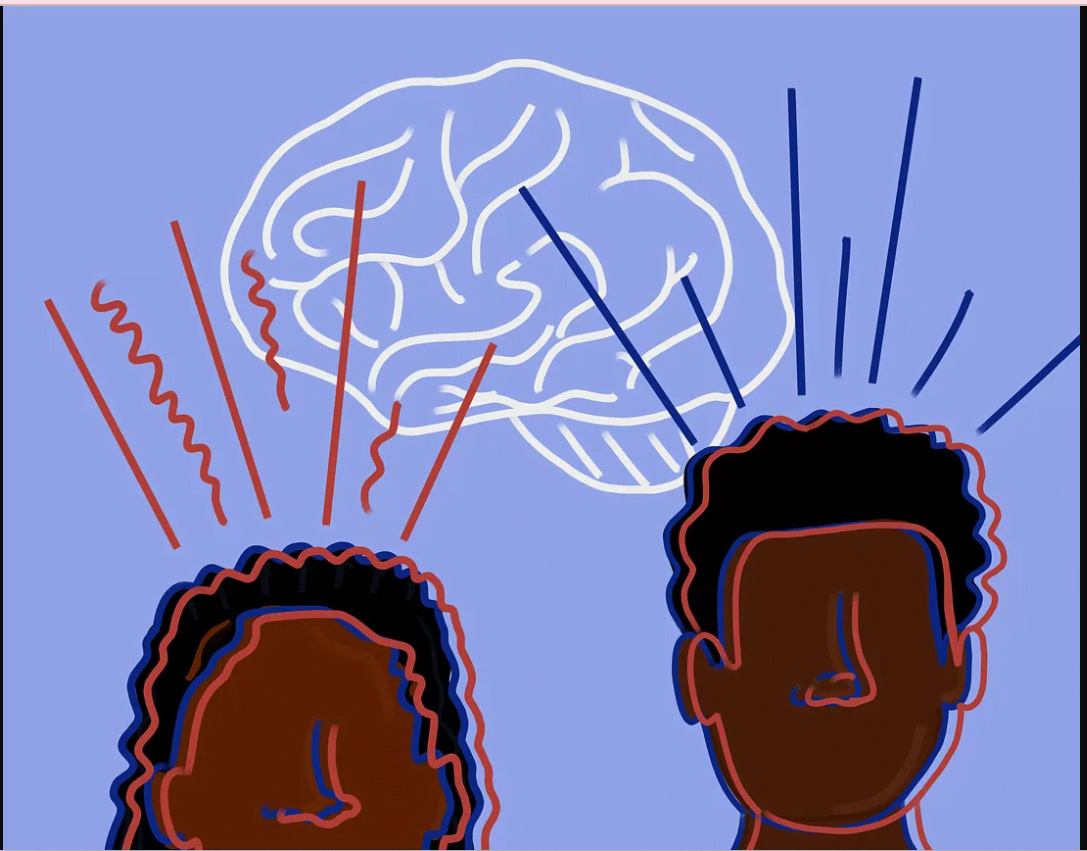After years of growing mental health awareness in the past couple of years, nothing much seems to have changed. In 2021, the Health Ministry launched The Mental Health Awareness Campaign Week encouraging individuals to break the stigma around Mental Health. Popular Therapy influencers have risen to fame and their lesser-known rise to fame happens to be the heavy price of 4000 INR for a single session of counselling. A cursory glance at therapy in the subcontinent reveals ‘Self Care Journeys,’ being sold through therapy channels and organisations.
Rich Indians have transformed themselves into ‘Life Coaches,’ to young impressionable teenage boys and ‘girlbosses,’ – Karishma Mehta, founder of Humans of Bombay recently received severe flak for overtly monetising storytelling and tokenistic sob stories. She is often seen on podcasts and shows to give ‘advice,’ to her audience. One of her captions entails, ‘switching the narrative from failing to learning,’ her profile is cluttered with the individualistic self-help syndrome that plagues the digital sphere.
While she manages to convince her audience that they are absolutely in control of their lives and dreams, why do influencers like Karishma Mehta leave out the enormous luxury their class and caste position affords them in the rat race they seem to denounce and yet inadvertently have a very big advantage in? The toxic positivity happens to run rampant in these seemingly ‘liberal,’ spaces.
If there is a common strand in all of this – it is that both mental illness and mental health are private individual affairs best handled with the luxury of capital.
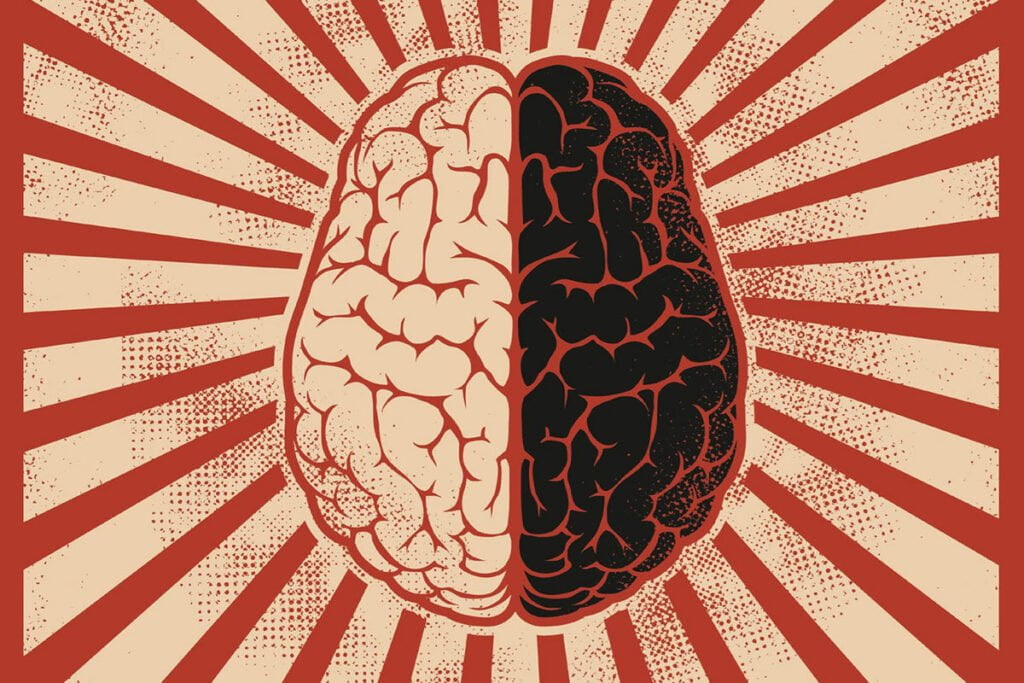
In the rise of such rhetoric, a counter-narrative has propped up, that mental health and mental illness are structural problems, caused and exacerbated by the perils of Capitalism and the neoliberal economy, which thus shouldn’t be individualised. In the South Asian landscape, the strenuous circumstances of Islamophobia and violent casteism leave the question of mental health open-ended and highly complex. In a country that’s witnessing a brutal crackdown on dissent, from the highest number of internet shutdowns in Kashmir to the Capitalist 1 per cent profiting off the Covid Crisis while the poor become poorer, mental health is highly political.
This counter-narrative, while well-meaning, operates on a very perfunctory level. This narrative is slowly gaining popularity among left-leaning individuals. The small circles forming within liberal spaces and universities that claim to be the harbingers of progressiveness have seemed to make this point without doing much about it. “It’s all structural,” has become a common talking point. This doesn’t do much apart from stating the obvious. It is easy to diagnose something as systemic and structural without further elaborating on what this ‘structure,’ means and how mental health is ‘systemic.’ In such a diagnosis, there is a tacit understanding that this structural order of things is permanent and thus doing something, anything about it, is futile.
There is something counterintuitive about this micro trend emerging within the anti-capitalist discourse, while it is true (capitalism and the fascist forces are driving us insane!) and individualised mental health is going to do more harm than good, this seems to stop people from taking small measures to improve their mental health – be it confiding in your friends or picking up a hobby that keeps you engaged.
“It’s all capitalism’s fault,” becomes a stopgap barricade against working on yourself in a capacity that is under your control. This probably explains the culture of nihilism that seems to plague urban elite ‘progressive,’ spaces today, wherein the question of change is impossible, and any action short of revolution is deemed useless.
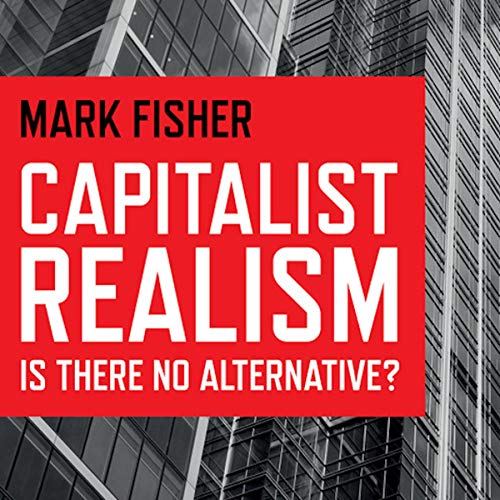
The ‘structural problem,’ mode of analysis has existed for quite some time, Mark Fisher’s foundational text Capitalist Realism proposes the idea that capitalism has produced and reproduced mental illness as a natural infliction, “Instead of accepting the vast privatization of stress that has taken place over the last thirty years, we need to ask: how has it become acceptable that so many people, and especially so many young people, are ill? The ‘mental health plague,’ in capitalist societies would suggest that, instead of being the only social system that works, capitalism is inherently dysfunctional, and that the cost of it appearing to work is very high.”
These ideas have a lineage that stretches further back, Fisher is telling us that the capitalist wants you to believe that the only standing between you and your life is yourself, that your anguish is a private affair, and that at the end of the day, you can pull yourself by the bootstrap.
Such rhetoric is all too implicitly espoused by the Indian Bourgeois Elite, with the myth of ‘merit,‘ and ‘self-made billionaires,’ like the Tatas. Merit continues to form the groundwork of Indian discourse where upper caste savarnas continue to own land, acquire generational wealth and social capital and want you to believe that your mental health issues are yours alone while reaping the exploitative loot of capital.
One way Mark Fisher’s scrutiny is so palpable in the Indian discourse is how the IIT Suicide epidemic has been politicised, 33 students in the past five years have died by suicide in the otherwise deemed prestigious IITs, and seven students have died by suicide in 2023 alone, two of whom were lowered caste students. Students and alumni have reported rampant casteism and deep anti-reservation thoughts on campus purported by upper caste faculty, who form the majority of the faculty at these IITs.
And yet, the discussion of the IIT suicides rarely touches upon or even addresses the roles caste and class play in alienating a student. The capitalist overlords would like us to believe in the abstraction of a vacuous ‘Merit,’ while continuing to view the mental anguish of victims as a private struggle suffered by damaged individuals.
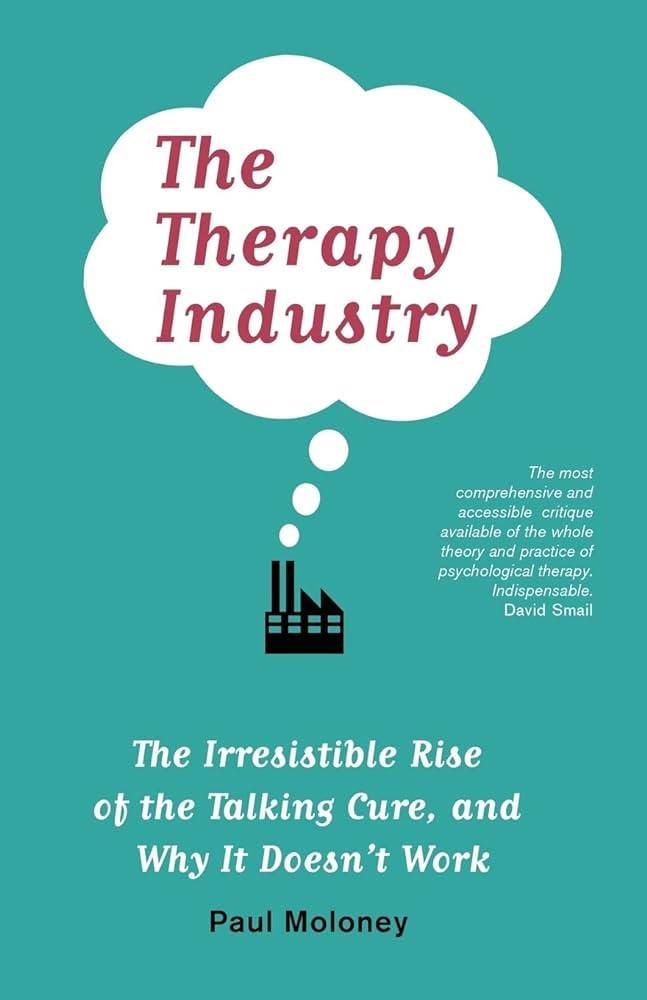
Similarly, Paul Moloney, in his book The Therapy Industry tracing the relationship between distress and power writes of how “it is the world outside that determines mental health, not the inner world that can be changed by talking about it.” Moloney builds a convincing case for how dull psychotherapy has become, he coins this as “vanilla psychiatry,” – analogous to vanilla sex, he writes of how the “vanilla,” position of contemporary psychotherapy misses the stakes of being more politically engaged.
“In the process of focusing everything, nothing is in focus,” he writes stating the perils of therapy today. So to speak then, there is a very rich and potent left scholarship and understanding of mental health anguish and neuroses as something stemming from socio-economic factors and not an isolated disorder produced by ‘chemical imbalances,’ in the brain.
It becomes rather pertinent to propose a new understanding of mental health that does not criminally individualise suffering and frame it within the boundaries of the personal and the private. It is rather obvious then that loneliness, isolation, depression and anxiety become the cornerstones of a society so heavily governed by capitalism, the fascist state machinery and corporate media moguls.
But then again the way this model has been approached leaves much to be desired for, with women in the Indian landscape especially, it becomes rather easy to get trapped in a false dichotomy. One where we afford ourselves too much agency (This is your problem!) or one where we don’t afford ourselves any agency at all (This is a structural problem, there is nothing you can do!). It seems rather reactionary to be stuck between either investing in a journal or giving up all hope and resigning your fate to the perils of capitalism, hence providing you with no respite on an individual level.
An alarming trend with urban women in South Asia is the infantile ‘joke,’ of becoming trophy wives, the rise of the Stay At stay-at-home girlfriend trend in the West has reproduced a parallel within the digital spaces of South Asia where ‘educated,’ women are found in be rejecting capitalism by becoming ‘stay at home with wives and girlfriends.’
One Instagram reel comments that women should reject capitalism by living at home and building a family, that way they won’t be stuck in a job they hate. There seem to be scores of women ‘joking,’ often about how the workload of capitalism and the mental anguish caused by it makes them want to say yes to the ‘Rishta,’ – even in the realm of humour, are we slipping into regressive nihilism while repackaging it as anti-capitalist rhetoric?
There are well-meaning intentions behind tracing capitalism as the source of mental health issues, but one must be wary of such rationalisation that keeps you from trying to get better. Defeatism is far from radical, there is no liberation in imagining a permanent hopelessness.
The left is fuddled with individuals from the margins and peripheries jostling with the growing power of capital, students and individuals face the threat of isolation and give into substance abuse to cope with their suffering. While this is a structural problem, some lean into a jaded nihilism that keeps them from taking any preventative measures or taking any steps to get better. Why bother to get better when you know your conditions are pre-deterministic and no individual efforts could battle the economic system that will throw you curveballs at every turn? Why make the effort to clean your room, see your friends, consume fewer drugs and show up to class, if these things supposedly aren’t enough to change the course of things in the bigger picture?
There is a tendency to fall back on the same limitations that liberal therapy speak holds, one shift from excusing their poor behaviour on account of trauma to employing the excuse of capitalism. Surely, capitalism has us backed up in a corner with the unavailability of paid labour, but it does not deny us the freedom to make the bed and fix ourselves breakfast.
The rejection of the liberal therapist model doesn’t mean that depression be immediately solved and resolved through the overthrowing of capitalism, there are alternatives, ranging from viewing therapy as a communal act to psychoanalytic therapy that understands the relationship between power and anguish, but yes these means, especially in India, are either almost inaccessible or very fractionally small in number. This in turn feeds into this profane kind of nihilism where even a suggestion of getting better is turned down rather vehemently.
Any assertion of a possible agency over your well-being has the potential to be met with hostility, ‘how can you suggest that my little joke about wanting to be a trophy wife is feeding into misogynistic stereotypes? It’s capitalism’s fault – what do you mean doomscrolling on my phone for seven hours might be depressing me? It’s a structural problem or an iron-clad miserable fondness of the desolate and the despair,’ the protests yield nothing of substance, the violence in the country is at an all-time high, rent is higher than ever, there is nothing to be done. It all adds up to the rhetoric that our personal lives are far too hopeless of redemption, burdened by the byproducts of capitalism, we tend to slip into this line of thinking more often than not.
If we accept that mental health is a structural problem and that the individual solutions are either too expensive or out of our reach? Where do we go from there? A deep reimagining of this solution lies in the mirth of ‘collective,’ action, then do we define what this ‘collective,’ action looks like and what it means in a society like ours?
Yes, there is political work and organising that needs to be done but there is also the deep-seated need to build community and share a hobby with your friends and peers – with how individualised our social unit is, it becomes more and more important to build platonic intimacy. Collective action, sometimes, looks like allowing yourself the prospect of help from your close ones, making a list of chores and taking a walk.

Deleuze and Guattari’s Anti-Oedipus proposes an alternative, suggesting that we must destroy all that oppresses us within, ranging from trauma to religion. They insist on the relationship between distress and power, “We reply that we have never seen a schizophrenic delirium that is not firstly about race, racism, politics, that does not begin in all directions from history, that does not involve culture, that does not speak of continents, kingdoms and so forth.” Here, they acknowledge that disorder is deeply tied to the systems of race, culture and politics. And yet they propose the idea of free will under capitalism, tasks that involve the radical shedding of old habits, rather than being a stagnant space, the mind then unleashes warfare.
Unfortunately, the realm of lessons and radical practices has completely been hijacked by the right and the neoliberals dominating the industry of self-help books and lifestyle podcasts. They seem to dominate the marketplace of overcoming distress and performing better, and there is a reason why cultural imposters like BeerBiceps rise to fame, it’s because they seem to espouse this idea that they can explain your unhappiness away, if the structural model affords us too little agency, then the content of these lifestyle coaches does the opposite, it postures the idea that there are these certain set of rules and once you follow them, taking them to the absurd extreme, you are bound to succeed.
The rise of Jordan Peterson and Andrew Tate in the West comes from the abundance of agency they avow their audience, they’re addressing the deep-seated desire of people to fix their lives. Albeit by selling them lies, they promise to guide them into a better job, into better romance and whatnot.
What makes figures like Beerbiceps and his alliances of imposters a success is that however insipid their advice might be, they provide clarity to misguided youth, while propagating the norms of self-discipline and hard work. The rise of Jordan Peterson and Andrew Tate in the West comes from the abundance of agency they avow their audience, they’re addressing the deep-seated desire of people to fix their lives. Albeit by selling them lies, they promise to guide them into a better job, into better romance and whatnot.
This is nowhere a suggestion that the left needs to be in the job of offering such didactic self-help advice and entailing guidelines on what to do and what not to do but there has to be a middle ground of agency that one can afford themselves in a highly capitalist and gendered landscape.
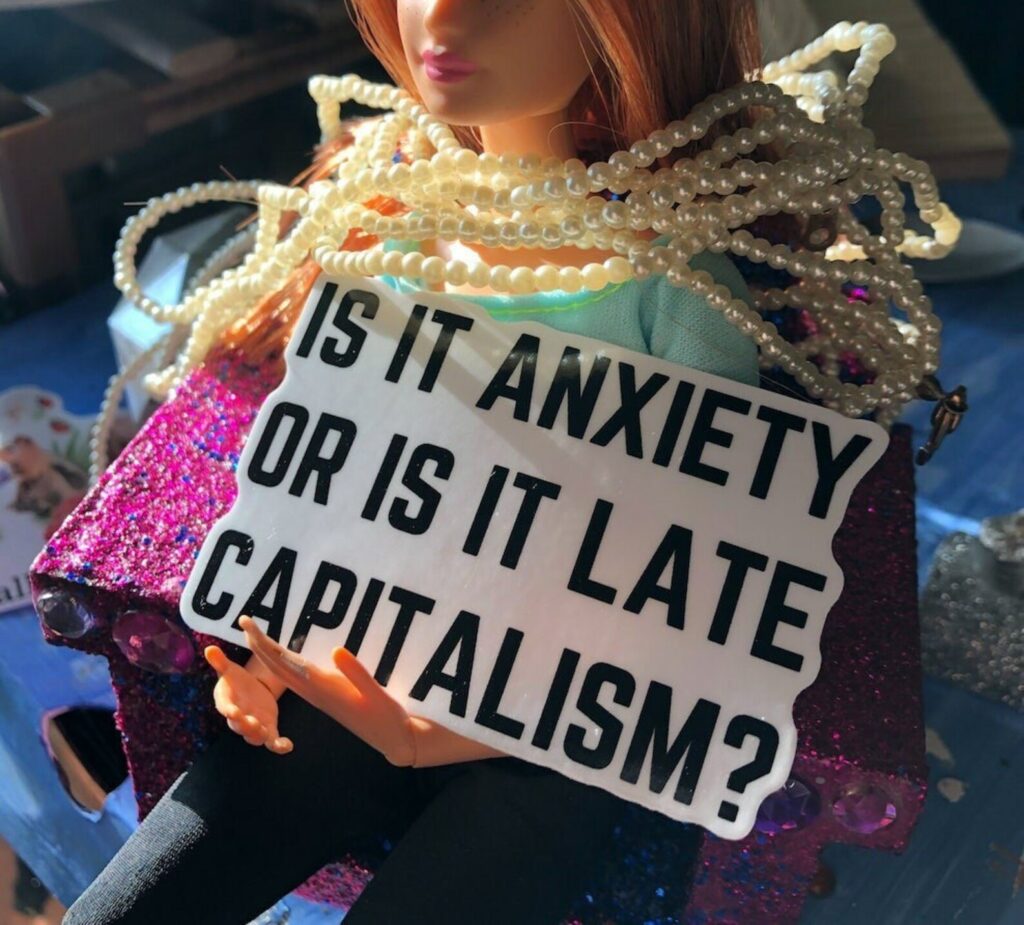
It is fundamental to introspect and understand the things you have agency over instead of falling into the extreme binaries of the Beerbiceps model (you can accomplish anything by hustling) and the Nihilist model (the world is hopeless because of capitalism and nothing means anything at all).
If the world of self-help books and vapid lifestyle coaches is offering people the pursuit of individual happiness, what must collective action on our part then look like? There certainly must be a way to acknowledge the role of capitalism in the production of our suffering while exercising agency over the things we can control.
P.E Moskowitz in his essay ‘There is no moral imperative to be miserable,’ writes that “The truth is we might be waiting a long time for the world to change. But there are often actions we can take to mitigate the effects of our environment: even in the face of the most brutal exploitation and oppression, people have worked together and changed their circumstances for the better.” And to be completely honest, the urban progressive elite of the global south have believed themselves to have a lot less agency than they possess, in comparison to the working class of the country. To sit in your ivory tower and quell about the fate of your health in the hands of the capitalist force isn’t revolutionary or radical at all.
We have convinced ourselves that since capitalism is the cause of our ill-being, there is nothing to be done – but then again what revolutionary potential does the act of rotting in bed and binging shows for eight hours straight in a mode of inertia possess? The result is the same, whatever might be the reason, the nihilism serves nobody, especially not the critical students in the hope of a revolution.
Now and then, there is the need to slip into the comfort of resignation, the world is cruel, it is crashing and burning, and reporting on the violence of the country feels like reporting on your demise and it isn’t entirely untrue to envision a hopeless landscape. However, there is much joy to be found in radical sincerity and kinship with your friends, in the mundane and the intimate parts of life, despite the irrationality of how the state and its economy are organised.
There is a lot to gain from rejecting the liberal and private notion of mental health and instead embracing the structural model of the mental health epidemic, but one must be wary of being trapped in a false binary. Misery isn’t a tenet of anti-capitalism and the burden of nihilism is philistine, deeply conservative, and is a deep-seated rejection of all that humanity stands for.
About the author(s)
Rida Fathima is a twenty-year-old Literature student at Azim Premji University with an interest in literary theory, film criticism, Marxist historiography and oral archives. She is interested in critiquing and analysing media through a feminist anti-capitalist lens.
